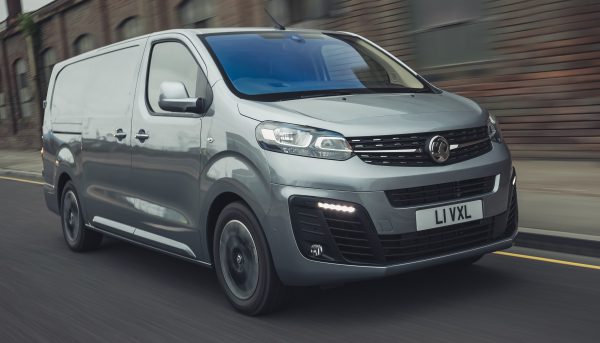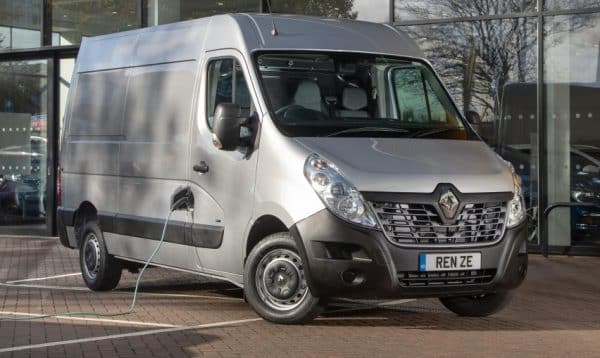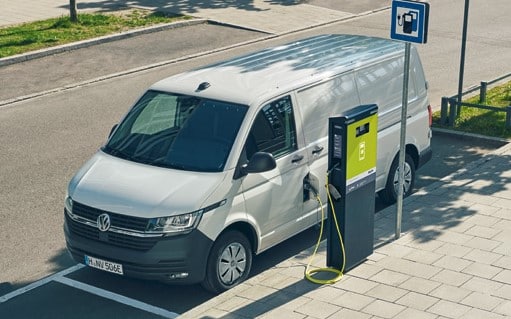
Electric vs diesel vans? There are advantages and disadvantages when it comes to choosing an electric or diesel van, and here we will take a closer look at which will be better for your business.
Firstly, diesel vans will continue to be a popular choice, mainly because they are more affordable to buy.
Also, when a business leases a diesel van, the monthly payments are lower than they would be for an electric van.
However, when it comes to running costs, an electric van is cheaper.
This means that the most important factor in deciding between an electric or diesel van for your business, will come down to how many miles your businesses is racking up on a daily or weekly basis.
Choosing a van for mileage
If your business is covering hundreds of miles every day, travelling mostly on the country’s motorway network, there’s a lot to recommend a diesel van.
The main reason is that you will enjoy a higher payload because electric vans tend to have a reduced payload because of the weight of the lithium-ion batteries.
The other big potential issue is that the driving range for an electric van may be a cause for worry.
The Vauxhall Vivaro-E is an excellent medium-sized van and it’s popular for a very good reason.
However, it’s driving range is over 200 miles so if you are travelling long journeys, you may need to calculate when and where to recharge the van’s battery.
This means stopping for at least half an hour so the battery can be recharged to 80% of its capacity.
A diesel van will not face the same hurdles because there are plenty of filling stations dotted around, but the number of quick charging facilities in the UK for vans is growing quickly.
Choosing a van for urban reasons

While an electric van can be a risky undertaking for long journeys, that’s not the same situation if you need to drive around town with multiple drops.
Here, an electric van with more than 200 miles of range could be a boon.
With its much lower running costs, an electric van has the edge.
For example, the diesel-powered Renault Master can carry 1,500 kg, while the electric Master ZE has a 1,100 kg payload.
The other issue for battery-powered vans is that cold weather, and having lots of electric items switched on, will use up the battery power more quickly.
Why choose an electric van?
There’s no doubt that electric vans are growing in popularity and from 2030, the UK government has announced that you will not be allowed to buy diesel- or petrol-powered vehicles.
This means that van manufacturers are switching their attentions to delivering electric vans for meeting a range of purposes.
Indeed, the Volkswagen e-Transporter is a great example of a popular van being reinvented to meet a new need.
And great new electric vans entering the market on a regular basis.
If your business needs to carry out lots of drops around town, check out the Mercedes e-Vito.
Electric vans are improving
As demand for electric vans in the UK continues to grow, the products themselves are also improving.
However, an important issue when it comes to choosing between a diesel-powered or a battery-powered van may come down to the tax.
Currently, there is no road tax to pay for a zero-emissions vehicle which makes a new EV an interesting consideration.
Businesses will also not need to pay to enter a growing number of cities trying to control air pollution, for example, London’s ultra-low emissions zone (ULEZ).
An electric van’s running costs

We’ve already explained that when it comes to electric vs diesel, electric vans are cheaper to run than a diesel-powered alternative, but you will also be helping the environment.
It also has much lower running costs, and if you sign up for a special electricity supply deal then your running costs can be lowered even further.
And when it comes to handling, an electric van may well suit your business if you are travelling short distances in cities, as opposed to driving a diesel van.
Don’t forget that as a business you will need to recharge the battery either at your business premises or at home.
This means you may need to install a dedicated charging point for this purpose to ensure that your van is ready for a day’s work.
You simply need to plug the charging cable into the van, ensure everything is working – or use a smartphone app to charge the van for off-peak savings – and be reassured that everything is good to go the next day.
Electric versus diesel vans – which is best?
Along with knowing how many miles you will be racking up, the reasons why you have a van for business will also be important.
If you are travelling short distances and staying on a site for the day, for example, then switching to an electric van may well make sense.
And while buying them currently is still an expensive undertaking, you really should check out the van leasing deals to see how much a new EV will cost – a smart move for a VAT registered business.

